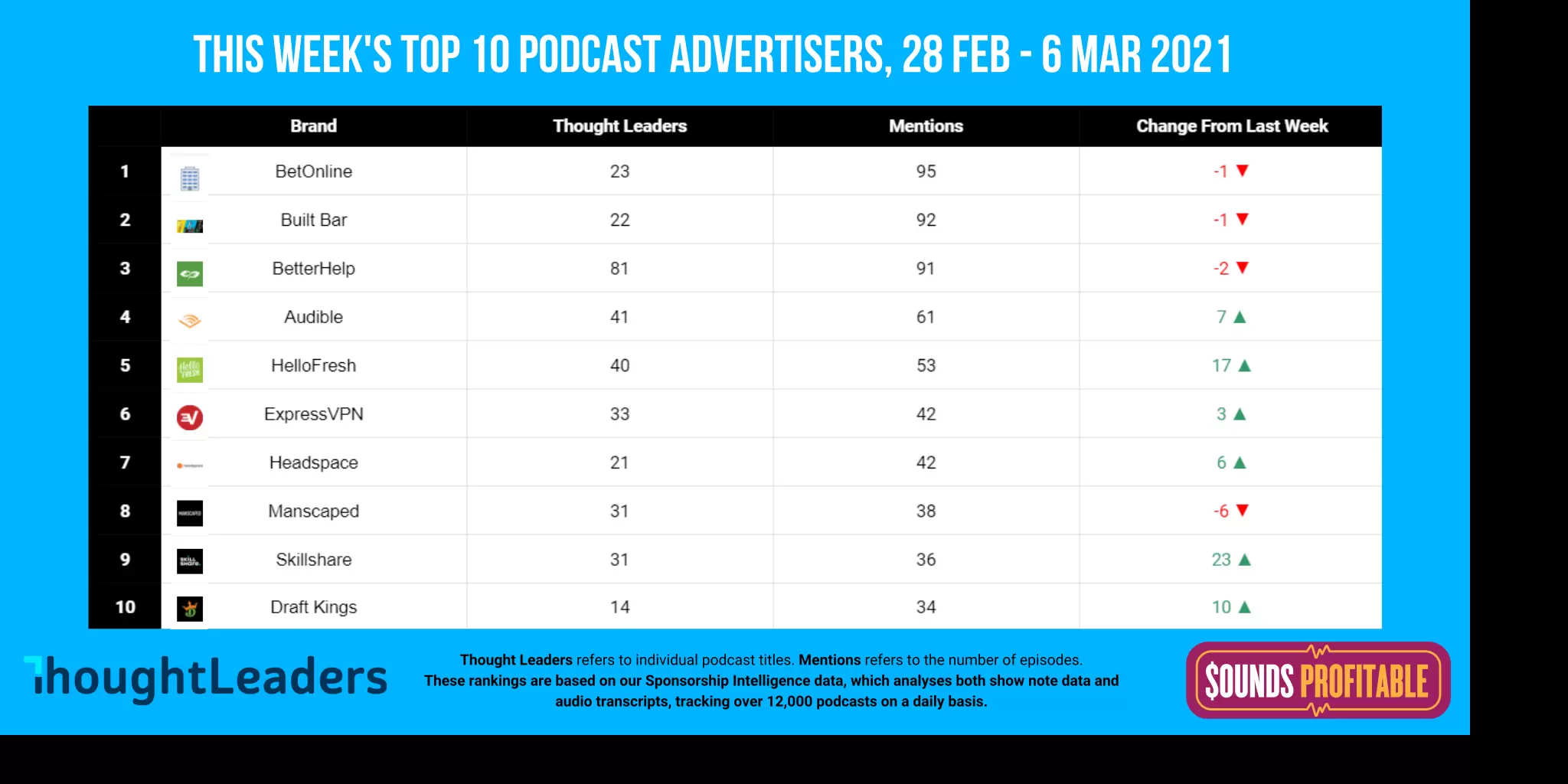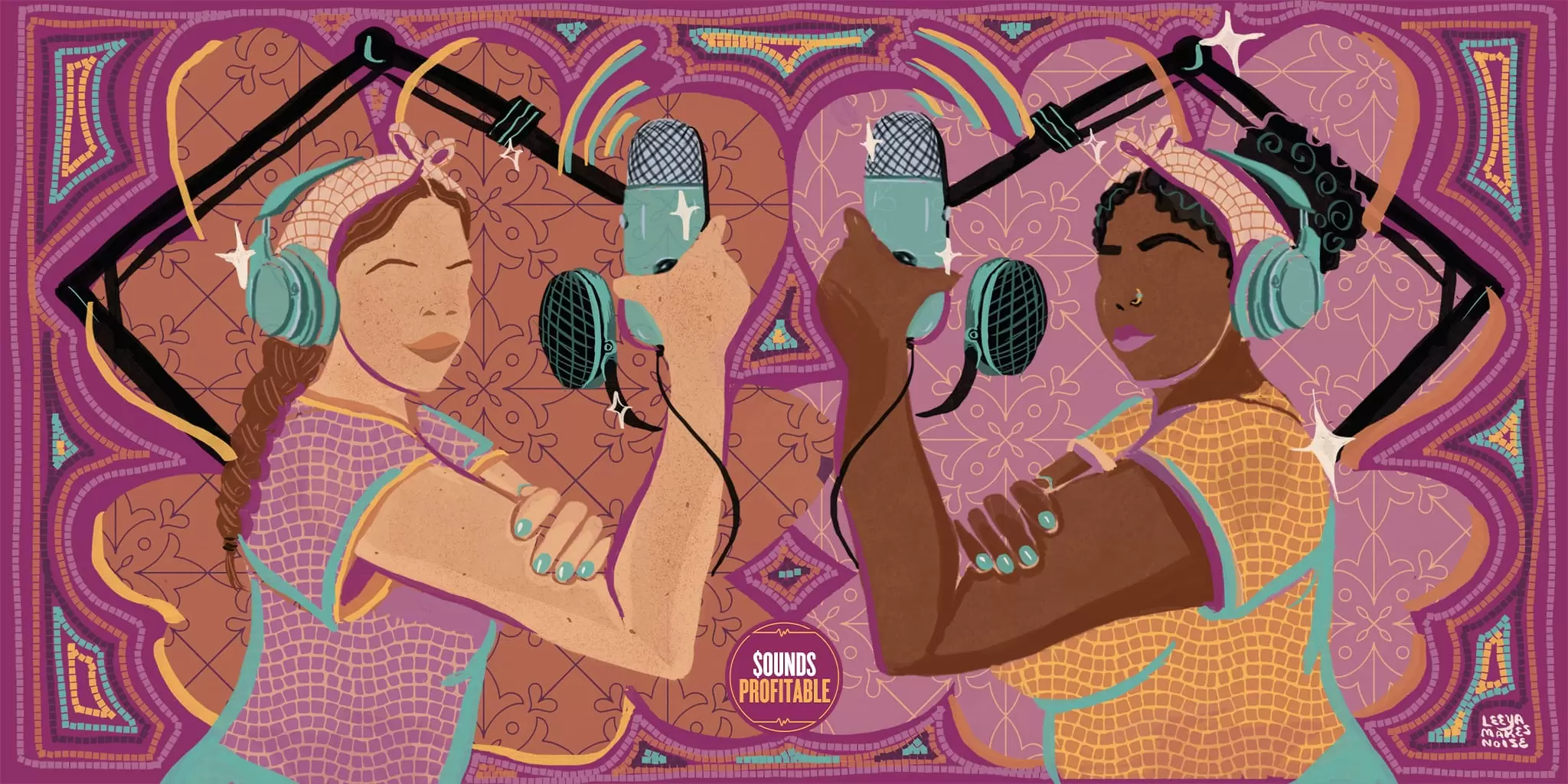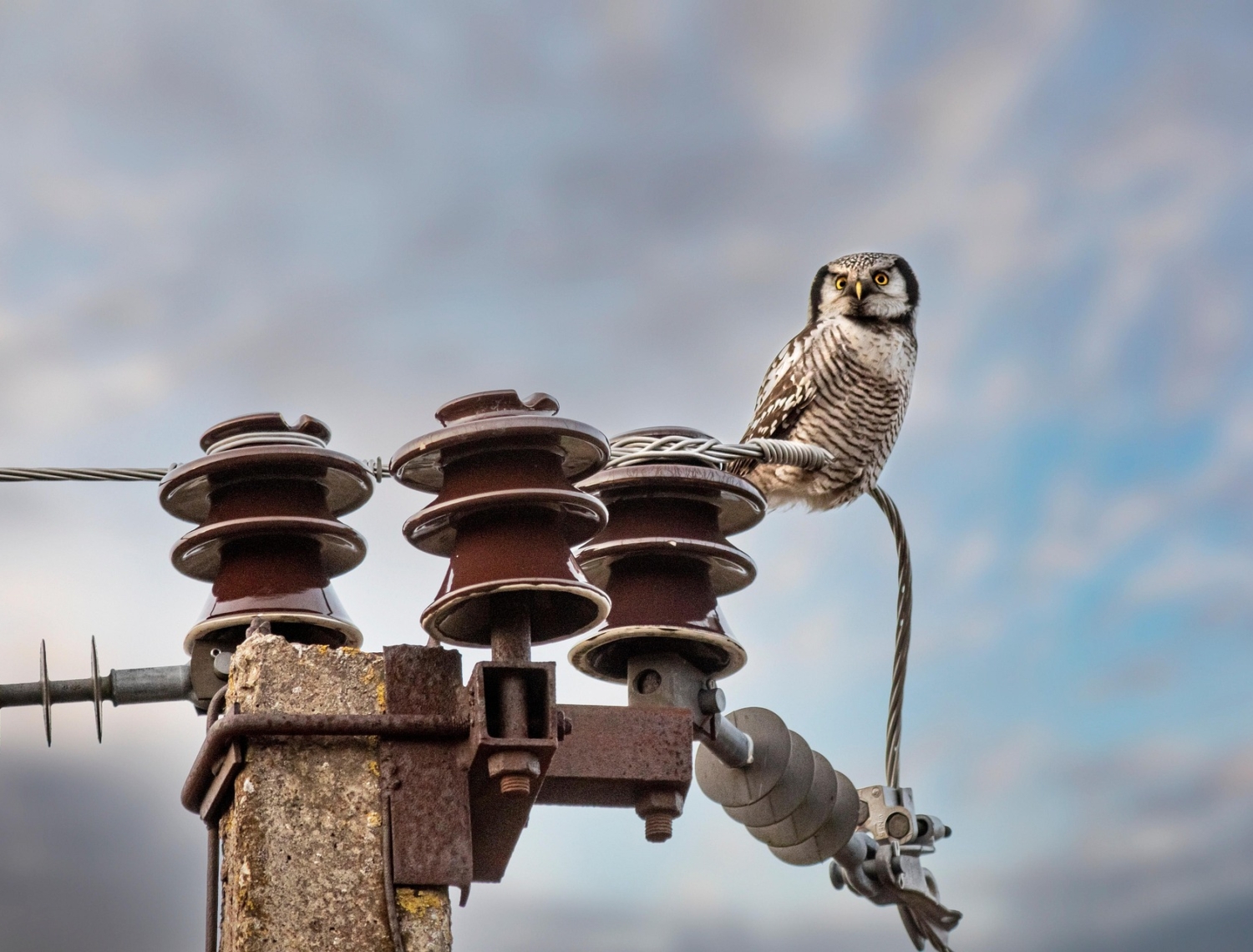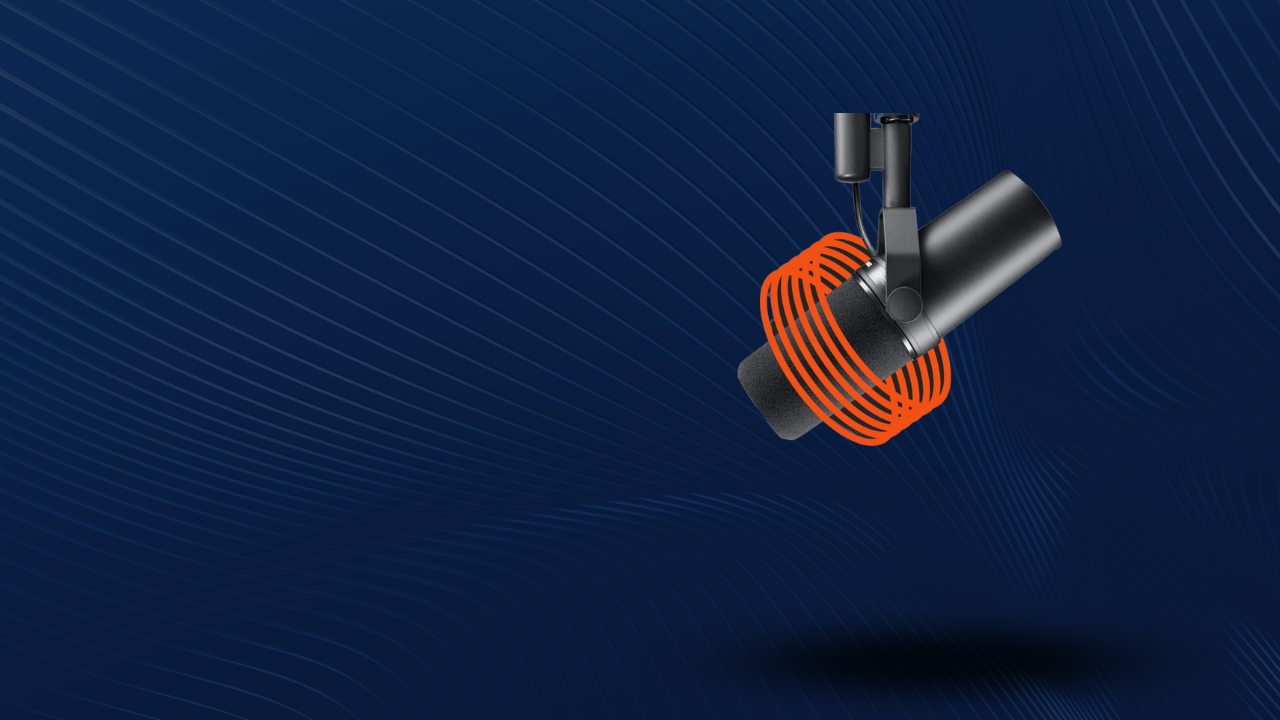Allowing podcast adtech to remain unbalanced along gender lines will only hurt podcasting’s growth as a medium that can hold its own alongside all major forms of media.
Introduction
Hello! My name is Twila Dang and I think more women should be working in podcasting.
I founded a women’s media company called Matriarch Digital Media where we make women-focused podcasts. Now normally when I say I want more women working in our industry, I’m focused on the content creation side of our industry. I cover topics like how to come up with ideas, how to be a producer and how to be a host among other things.
But part of wanting more women to be in the podcasting industry means I have to look beyond the creative side of podcasting. A large and ever increasing part of podcasting is being driven by technology, with opportunities to work in a variety of areas that will drive our industry forward.
Since I’m here writing for Sounds Profitable it’s only natural that I focus on podcast adtech.
How do we get more women involved in adtech? I think we should focus on five core areas:
- Education
- Mentorship
- Recruitment
- Internship
- Access
I have a vested interest in encouraging more women to find their place in podcasting – I do run a women’s podcast network after all. And since I’ve already confessed that content is more of my strong game I reached out to some amazing women leading the way in Podcast technology to share their knowledge on how best to create more opportunities for women in podcast adtech.
Education
Education is the most straightforward approach.
Working with educational institutions to create more courses, programs and pipelines is needed to encourage young women to be involved in podcast tech. And honestly, even pushing for this in broadcasting and audio tech as a wider umbrella could lead to podcasting as a potential career path. At the earliest level, young girls in STEM programs should be encouraged to explore the tools we use everyday.
Stacey Goers, Senior Product Manager for Podcasts at NPR shared the following:
“Podcasting technology itself can be really approachable; I didn’t have a technology background and was able to learn by just diving in. I encourage anyone who has an appetite for the medium to apply to that job or start to learn. But, I also think we need to encourage women who are at all interested in STEM fields to both stay with STEM, and know that podcasting, audio and media are career options. Before COVID, NPR was lucky enough to have a career booth at the Grace Hopper Celebration of Women in Computing, and so many young women were thrilled to find that a company like NPR was hiring for technology roles – and specific to podcasting! I think we need to educate more young graduates that there are real problems to solve in this industry, with careers from design, to technology to data science.“
At the post-secondary level, industry leaders and companies should be targeting and working with training programs and colleges to provide specialized learning opportunities.
Jessica Cordova Kramer, Founder and Chief Executive Officer at Lemonada Media is working to build new pipelines at Historically Black Colleges and Universities:
“In general, we need more womyn and womyn of color in audio, and one key lever will be exposing young people in high school and college – and young professionals – to the space and career options earlier. Those of us in the industry need to be working with institutions to make the audio space an option for creatives, engineers, communicators, and young, diverse people with all sorts of propensities to join the audio community more deliberately. For our part, Lemonada is launching paid internships with HBCUs across a few genres including marketing, ad operations and engineering in 2021 and beyond.
Audio is such a great and flexible career; I wish someone had told me about it before I went to law school.”
There’s even room to address the peer-to-peer education that is so vital for independent podcasters to keep pace.
Katina Kyle a.k.a. K-Town the creator of Mysterious Radio and The X Podcast is invested in sharing knowledge that will help the community of podcasters:
“Our team of five is striving to have 100% independence to handle our own ads and running our own adtech for maximum revenue. Adtech has allowed us to monetize new and archived content that our faithful audience loves so much. We want to see ALL podcasters that want to walk a similar path to be in control of their own destiny given that chance to do so. For that to happen it’s our duty as a community to highlight all possibilities to monetize their content and being completely transparent about the process. This will ultimately allow podcasters at every level choose the right path to accomplish their goals. Doing anything less would be hurting the podcast community.”
Mentorship
Mentorship is so important because it is often the first time the spark of an idea is planted.
When a student or a young woman is brave enough to seek out a mentor, that relationship automatically holds tremendous weight. What you say or don’t say will influence your mentee greatly. Taking the time to look beyond the surface relationship that mentorship sometimes represents is crucial. If you know your mentee has or is developing skill sets that could create a successful path in adtech, encourage her to explore it. If nothing else, encourage her to learn more about the technology side of our industry. It will make her a more well rounded professional and could absolutely open opportunities for her down the road.
Ilwira Marciszek, VP of Digital Sales and Partnerships at AdLarge Media stressed the importance of mentors even if they are outside of your chosen field:
“From my perspective, I didn’t really have many of those things in my career journey, as I did not come up in the tech space per se or have a tech education background…ad sales/ad ops is tech adjacent and still young in the podcast space. I had the advantage of not many people being there before me and some great mentors who allowed me to learn as I went along as the industry evolved. An advantage when you are a first mover in the space…not necessarily applicable to everyone (I get that). I will also add that your mentors don’t need to be in tech roles to be great advocates for your career and for you– but it is important to work for a company where there are women in charge who will allow you to develop to your potential. I am proud that AdLarge’s Co CEO and Co Founder, Cathy Csukas is a woman, as is a majority of our leadership team.
Now, being in a leadership position myself, I make it my mission to advocate for and recruit women into my department, which is, all women – a team of 4 which will be growing this year.”
Recruitment
Recruitment should absolutely include all of the traditional, targeted ways we encourage employment: job postings, professional organizations, training programs, alumnae networks, etc.
Jen Castillo, Senior Director of Ad Operations at Slate highlighted an example that supports Latina/Latinx women:
“I think we need more groups for women in tech in general and more peer-to-peer support in supporting growth.
A group I am a part of is Latinas in Tech which is not just the media space. They do a great job in driving change and collaborating efforts to promote roles across their industries for the Latinx community. We need more like that across the board for all women!”
But recruitment also provides us an opportunity to develop relationships with women who might not have seen themselves working in our industry at all, let alone in adtech. Do you know a woman who is great at organization? A woman who can pull together all the components of a large event seamlessly? An above and beyond volunteer who leads church groups, ERG’s, coaches kids’ teams?
The skill sets required to pull off any of these activities are the exact skill sets that would be great in adtech. But many of these women will never consider it.
That’s where we come in. One of my roles at Matriarch is to identify women that I think would be an excellent addition to the podcasting industry. I’m so committed to it that I run a monthly online meetup called Women In Podcasting to encourage more women to get involved in our industry. Often we focus on the younger generations (students, new graduates). But we’re missing out on a valuable opportunity to tap into the community of women who excel at the practical skills that will drive the future of adtech.
Heather Osgood, Founder at True Native Media highlights the need to make room for women to come to the table:
“To attract more women to the podcasting adtech space, we need them to know that they can have a seat at the table, and will be included in conversations, and have their opinions listed to, understood, and implemented. It’s our responsibility as an industry to make sure women recognize the value of the unique intersection of technology development and creativity in the space. As leaders, and business owners, we need to hire women and diverse voices, we need to promote women, and we need to encourage women to take internship roles.”
Internship
Amanda DiMarco, Director of Client Success at Veritonic, points out that increase in mentorship and internship will help bring balance to industry roles that tend to skew male:
“Similar to trends we see in VO casting and performance, the same seems to still hold true in other parts of the industry. Sales and Leadership roles still tend to skew male. By increasing opportunities for internships and mentorship for women in Adtech, they can feel welcome, and empowered to pursue these roles. For younger women or those newly entering the workforce, a successful, confident female role model and mentor to help them navigate their career path will only continue to better and grow the opportunities in this space.“
Internship is important but a tricky topic for me. I personally think interns should add value to your work but in return they should be given at least three times that value in the forms of payment, mentorship and education.
One of the best ways to learn is by doing. If you have an intern (or interns) you should be utilizing them in ways that add to their skillset. How will you know you could be good at something if you are never given the opportunity to try.
Now please understand that I’m not advocating for interns to be given the workload of a professional doing that same job. I’m asking that you invest in a person by letting them work with you. Letting them contribute. Letting them ask questions and learn. And most importantly, letting them contribute to something that will show them what successful work in the field can look like.
Brittany Clevenger, Integrated Media Manager of Podcasts at BetterHelp is huge proponent of internships and how they can create professional growth:
“Internships! Who’s doing them, and how do we encourage more of them? The podcast space is a very unique place where we buy audio content mirroring that of radio but it’s done in the digital lingo of CPM. Until you enter this world, it’s impossible to understand how it all works. While on-the-job training is undoubtedly the most efficient way to learn, it’d be really cool for students to get some experience and come out of college swinging. Working in podcasts offers the chance to learn advertising sales, agency work, media buying, creative services, business development, and much more.
It’s a thriving field in which any young adult can begin and quickly gain an invaluable amount of experience to become a desirable media professional.”
Access
Access has two meanings here.
The first meaning is access to learning. For most of us working in podcasting, a large part of our learning curve is represented by being self-taught. The internet has been a teacher, mentor and friend as we scramble to make sense of the complexities of an industry that is rapidly changing and growing. The prevalence of peer-to-peer learning through resources, like this newsletter, represent the best and worst of our industry.
The best because on one level, we have created a community sourced set of learning tools that improves upon itself everyday. The worst because we’re relying too heavily on individuals to fill in support gaps that the industry should be coming together to provide.
I’m grateful for organizations like AIR Media. They are a global community of independent audio producers helping to establish transparency in the audio industry. AIR provides standardized information, mentorship and training to members. But we can do more. We should do more.
With all of the success we are seeing at the corporate level of podcasting, there should be more contributions from the top down to make our industry sustainable long-term. That doesn’t just mean profit. It means creating a pipeline for learning, job creation and career growth over time.
Stacey Goers of NPR has keen insight on how learning perspectives improve our industry:
“I’ve seen some of the greatest innovations come from understanding that “it doesn’t have to be this way;” anything from publishing improvements, to how we interact with our users/audience, to how we run our teams and workplaces. In mentoring and working with those new to the industry, instead of teaching how it has worked and how it is, let’s move to how it could and should be. This is imperative to keeping talent and being relevant.”
Stacey also highlights need for more women to be represented in our spaces of thought leadership:
“We have so many women working and innovating in podcasting technology, oftentimes in the non-headline roles that actually keep this industry afloat and moving. However, the industry’s thought leadership (for a lack of a better phrase) is mostly male. That needs to balance itself out, and the industry needs to hold space for brilliant leadership from women.”
The second meaning is access to accessibility. We have all been talking a good game but not showing up properly to create better access for disabled communities that access our content.
I personally, am working rapidly to address my own company’s failure to be more inclusive in our content and our accessibility tools. But this goes further that our audience.
The pandemic taught us that work can be done anywhere and that we can accommodate a variety of challenges that we thought were impossible to consider a year ago. Work from home, no problem. Record remotely, no problem. Teams scattered across the country (or the world), no problem. So, now is the time to stretch our thinking (and our actions) further.
There are lots of roles that members of the disabled community could do with great success. Roles that could be created with flexibility of schedule and workload. Roles that could contribute to the success of a podcast.
Let’s think bigger and more broadly about how women from all walks of life can be successful in our industry.
Wrapping It Up
Finally, I want to say that women cannot do the work of expanding the presence of women in the podcast industry alone.
Many of the jobs, schools, programs and companies that I am referring to have one thing in common… a majority of men holding positions of power and influence.
If we want the industry to change for the better, we need everyone’s help. This newsletter is just a start. Imagine what podcasting could look like in five years if we all put a genuine effort into these ideas.
We could start a podcasting, and perhaps a media, revolution.
Note from Bryan
I met Twila Dang through the amazing Juleyka Lantigua-Williams, and we hit it off right away. Twila worked very hard to turn around this piece in a very short amount of time. She reached out to a long list of amazing women in the podcast adtech space, some are quoted, others we couldn’t connect with in time. But it’s important to me that all of you learn more about these brilliant people and expand your view of who the leaders are in this space.
- Stacey Goers, Senior Product Manager for Podcasts at NPR
- Jessica Cordova Kramer, Founder and Chief Executive Officer at Lemonada Media
- Katina Kyle a.k.a. K-Town the creator of Mysterious Radio and The X Podcast
- Ilwira Marciszek, VP of Digital Sales and Partnerships at AdLarge Media
- Jen Castillo, Senior Director of Ad Operations at Slate
- Heather Osgood, Founder at True Native Media
- Amanda DiMarco, Director of Client Success at Veritonic
- Brittany Clevenger, Integrated Media Manager of Podcasts at BetterHelp
- Laurie Belleau, VP Digital Innovation & General Manager Podcast Group at Market Enginuity
- Elli Dimitroulakos, Head of Automation, Americas at Acast
- Lauren Tharp, Product Manager at Acast
- Sarah Cotenoff, Cofounder / Sales & Partnerships @ Podsights
- Sharon Taylor, Managing Director at Omny Studio
- Arielle Nissenblatt, Community Manager at SquadCast.fm
- Justine Benjamin, Director, Global Marcom at AdsWizz
- Moomal Shaikh, Senior Product Manager at Oracle Data Cloud
- Hilary (Ross) Shafer, Vice President of Podcast Media at Veritone One
- Gretchen Smith, Vice President of Media at Ad Results Media
- Anna Ratala, CEO & Co-founder of Zvook.co
- Sarah Timmins, Associate Director, Podcast Advertising Operations at NPR
- Caila Litman, Director, Podcast Sales & Enterprise Product Innovation at Conde Nast
- Cathy Csukas, Founder and Co-CEO, AdLarge Media
- Shreya Sharma, Podcast Writer at Inside.com
- Rockie Thomas, Chief Revenue Officer at Media Creek, Inc.
- Krystina Rubino, Head of Offline Marketing at Right Side Up
If privilege didn’t exist, you’d definitely be reading a podcast adtech newsletter from any of these wildly intelligent, highly qualified individuals instead of the ramblings of someone who dropped out of college in his fifth year while trying to become a history teacher.
I will continue to highlight, reference, and work with all of these amazing people, not just one month out of the year, but going forward. This is not an exhaustive list and it narrowly focuses on individuals I interact with in the podcast adtech focused space.I want to do better and would love to expand this list, so please reach out.
Homework – with Yappa
Allowing podcast adtech to remain unbalanced along gender lines will only hurt its growth as a medium that can hold its own alongside all major forms of media. Here are some questions that we should all be asking ourselves, compliments of Twila Dang.
- How can you create formal and informal adtech mentorship opportunities personally or within your organization?
- How can you and your organization expand your recruitment and access pipeline to bring more women from all walks of life into podcast adtech?
- How can you encourage women within your organization to take on more adtech roles and provide them with the support system to excel in them?
Sounds Profitable will never charge our readers to learn from us, but several individuals have asked about supporting us directly. You can find out more about our individual sponsorship at our Patreon.
We’d love to hear your responses to the question and this article, so click the Yappa image below to leave us a voice message, which we’ll gladly respond to and include in our podcast (with your permission!)
Market Insights – with ThoughtLeaders

Skillshare and Draft Kings pop in to knock Ritual and Honey out of the top ten (in this report). We’re getting close to the end of Q1 and I’m very interested to see how drastically all of this changes for the rest of the year. Older issues of Sounds Profitable include the images from those weeks, so definitely check them out and compare against what you’ve been seeing in the space.
Product Deepdives
Next week, on March 18th, we’re excited to share that we’re diving in deep with the team at Spreaker. We’re going to explore their full featured product, which should be great motivation to fully migrate over.
If you missed our other product deepdives, with Podscribe, Triton Digital, and Adswizz, you can find them on demand on our website. Definitely let us know what you think!
Things to Think About
I highly recommend all my subscribers also subscribe to Podnews. Last week, I found a few pieces of information that caught my attention.
- The IAB has expanded their public feedback window on v2.1 to March 17th. I’m not really shy about my thoughts on the IAB, so I’ll quote some of what James had to say in Podnews last week: “Podnews can reveal that over the entire 74 days, the public feedback email address given didn’t actually work: emails silently bounced with a User Unknown error. The IAB described this as “unfortunate”, but would neither confirm nor deny that it has received no feedback at all to this address as a consequence.”
- The Infinite Dial, by Edison Research, premieres on March 11th at 2PM ET. Just like a battle of the bands, if enough of you sign up using my link, Tom will have to read my questions (kidding).
- Chartable expanded the ability for clients to change attribution windows, while also making it crystal clear that “changing the window involves tradeoffs”. I’m a big fan of working with vendors with strong stances on methodologies because defending a custom methodology can be a lot of work.
- Podsights wasted no time in fully integrating pod.link into their offerings. All these new features appear to be free for anyone already using their services. They’re also actively hiring!


















































































































































































































